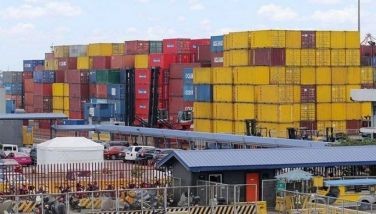Philippines seeks to regain EU access for pili nut exports
MANILA, Philippines — The Philippines is seeking to recapture the European market for the export of pili nuts, one of the country’s most important nut tree crops.
The Department of Agriculture in the Bicol region recently gathered pili producers and processors, and local government units to inform them on existing EU rules pertinent to the authorization and placing of novel food on the EU market.
DA-Agribusiness and Marketing Assistance Division chief Adelina Losa said the Philippines is working on the completion of a dossier or data package on pili nuts which should comply with the European Commission (EC)’s traditional food regulations.
In November 2015, the EU laid down new rules for the placing of novel foods on the EU market. Novel food refers to those that have not been used for human consumption to any significant degree in the EU before May 15, 1997.
Pili nut, as an export product in the EU, has been blocked and temporarily stopped following the said regulation.
Pili is a fruit tree crop indigenous in the Philippines, particularly in the Bicol region.
As of 2015, the Philippines is the only country known for commercial production and processing of pili-based food products and by-products, with Bicol contributing 80 percent of the total output volume.
The main principles of the novel food regulation put emphasis on consumer safety, proper labeling and nutritional quality.
André Wielink, managing partner of Frischebox GMBH based in Germany, whose business is in the importation and distribution of nuts and seeds in Germany, Austria, Belgium, France, Luxembourg and Spain, also provided an overview on the hazard analysis and critical control points (HACCP) quality standards in Europe.
Wielink said the HACCP system serves as basis for International Featured Standard or food and product standards, which help ensure that companies certified to IFS standards produce a product that conforms to the specifications agreed with the customer and work continuously on process improvement.
The EU requires a technical data sheet which should contain product information, ingredients information, chemical, biological and physical parameters, nutritional value, packaging, shelf life and storage conditions.
Further, Jerome Bunyi, agriculture counsellor-designate at the Embassy of the Philippines in Belgium and Luxembourg, emphasized that organic certification is the direction that he would like Philippine producers and authorities to look forward to.
This amid the increasing sophistication of the EU regulations, especially that the Green Deal is about to further increase the focus to organic production consumption in Europe.
The European Green Deal is the EU’s blueprint and roadmap to make Europe the first climate neutral continent by 2050.
The DA is awaiting the results of the Bureau of Plant Industry safety assessments such as nutritional, aflatoxin, heavy metals and microbial analyses. Results of which will be included in the dossier, together with some documents for the gap analysis on pili nut’s history of use.
- Latest
- Trending




























